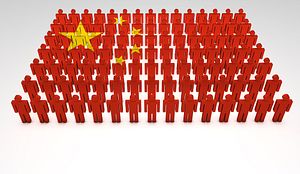The nature of warfare has changed radically since the time almost two centuries ago when Carl von Clausewitz wrote On War, his great treatise on the subject. For him, the great exemplars of tactical genius were Napoleon and von Bulow; the horrors of absolute, mechanical war lay in the future. Even so, there is one great insight in von Clausewitz’s work which has resonance across the ages and transcends culture. “We are apt to regard the combat in theory as an abstract trial of strength, without any participation of the feelings,” he writes, “and that is one of the thousand errors which theorists commit.” Clausewitz acknowledges that “the heart and sentiments of a nation” are an enormous factor in the product of its political and military strength. Of all the noble feelings that fill in the human heart in the exciting tumult of battle, he writes, “none, we must admit, are so powerful and constant as the soul’s thirst for honor and renown.” War as a battle of feeling and moral sentiment rather than brute strength is his great message. And it helps us today when we look at different kinds of conflict across the world.
Anyone looking dispassionately at China’s pushback with Vietnam in the last month without Clausewitz’s insight might profess puzzlement. It seems illogical. Firstly, China has serious domestic security issues at the moment, with a number of very nasty attacks related to Xinjiang over the last few months. Secondly, China has a number of ongoing territorial spats, with those involving Japan and the Philippines being the most severe. Thirdly, relations even with the DPRK look bad, with rumors that the Chinese have been exerting pressure on the capricious young leader of their northeastern neighbor not to go ahead with another nuclear test. With all this negative activity happening inside and outside, why do more to alienate regional neighbours, and the international community, by encroaching symbolically onto contested territory and raising the hackles of a famously bellicose neighbor to such an extent that Chinese investments in Vietnam are attacked and people have to be repatriated? Far from promoting China’s self-interest, isn’t this damaging them?
Were foreign policy a solely rational process, where cause and effect follow smoothly along, then we might try to divine some long-term strategic intent from Beijing to make sense of its recent moves. But it is probably wiser to take heed of Clausewitz’s writing on the sentimental and moral dimensions of war. China is a country that has become wealthy and (through that wealth) powerful relatively quickly. It has done this largely under the skeptical and often ill-disposed eyes of the rest of the world, who dislike its political system. Its demise has been predicted many times in the last two decades, more often than not through wishful thinking. Despite all the challenges, China has so far prevailed. It is not surprising therefore that it now feels some right in flexing its muscles, and pushing back.
Add to this the weight of memory. Events 75 years ago sometimes seem like yesterday in the Chinese psyche. Young people might not know much of the detail of the war period from 1932 onwards, but going by the cacophony on Chinese social media they have certainly acquired anger and feeling about that time. Chinese leaders might have problems creating unity over internal social policy, but all the evidence points to the fact that when they put pictures of their troops and agents undertaking operations like the recent ones in the South China Seas, the public is on their side, and a sunny unity reigns across the country. Which leader wouldn’t want to exploit this at a time when so many other issues are contentious and tough?
Dabbling with public sentiment about your country’s historic resentments and frustrations at how little heed is paid to its international pride and status is one thing. But it takes leaders of what Clausewitz called profound moral and intellectual skills to be able to channel this in the right direction, rather than being pushed along by public opinion towards an unexpected clash that might not work in their favor. Emotion and public sentiment are powerful allies in even a phony conflict.
But should any strategist in Beijing be tempted to dabble with a real military clash along the maritime borders, then they need once more to have a look at the great German theorist. He writes of the crucial need, in a zone of human activity so prey to fortune and chance, to have a military that is “habituated” – trained in the real theatre of war, and used to its experiences, rather than theory. And here the Vietnamese link is a sobering one. The last time Chinese forces had any significant combat experience was in 1979, with the Vietnamese. It ended up being a debacle. This profound awareness of a real lack of experience means that, for all the noise and threats, only in the most exceptional circumstances would Chinese leaders really push the button for conflict. And that, for all of us, inside and outside China, is a very good thing.

































